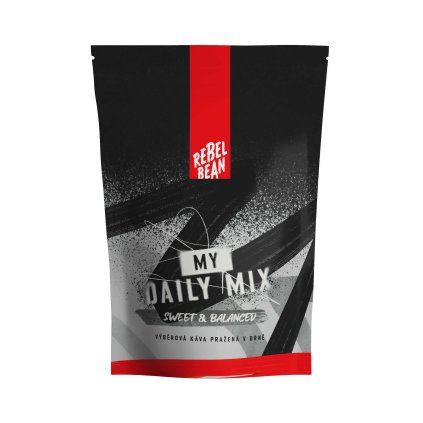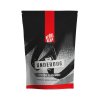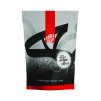Colombia Santa Maria
| Category: | Coffee |
|---|---|
| EAN: | Choose variant |
| Farmer: | Coop od Santa Maria Farmers |
| Region: | Santa Maria, Huila |
| Variety: | Castillo, Caturra, Colombia, Bourbon |
| Processing: | Decaf - decaffeinated cofee ( using Sugarcane method) |
| Altitude: | 1 700 – 2 100 masl |
| Importer: | Coffee Quest (NL) |
| Roast type: | Omni roast |
| Roast date: | In the last 14 days |
| Availability: | Until December 2025 |
Sweet & Juicy
Our new decaffeinated coffee is again without compromise! Amazingly sweet, juicy and very clean in taste. It excels both on espresso and on filter, where the sweetness of the panela comes through beautifully with the pleasant fruitiness of plums and blums or red apples. All this is complemented by a pleasant nutty aroma and a full, dense body. On espresso, the higher acidity again comes through and you can look forward to a distinctly fruity coffee and the typical slightly smoky aroma that sugar cane decaf usually has. This decaf is one of the best we've had so far, and it definitely holds its own with regular coffees!
Our decaf this time comes from the Santa Maria Farmers' Association, which is made up of 25 small farmers from the department of Huila in Colombia. It is a blend of local varieties Colombia, Caturra, Castillo and Pink Bourbon.
All the coffees were first processed using the classic washed method, blended and then decaffeinated. The decaffeination process was carried out in the same area by a local company using the sugar cane method. This means that the coffee arrives in Europe already decaffeinated, which is not entirely typical. This is also the first coffee from our new collaboration with importer Coffee Quest, from whom you will definitely see more coffees in our line-up!
At Rebelbean, we've all known for a long time that decaf is simply awesome! We like to drink coffee, and we drink a lot of it - it's just that when you overdo it, it's not much. The perfect solution is decaf! Especially when the coffee still retains most of its original flavours. Technology gets further and further away every year. I'm sure you're wondering how the whole decaf process works - so let's try to sum it up in a nutshell.
For the record, low-caffeine plants do exist, but they are not grown commercially, at least not yet, on a large scale. In all respects, it is much easier to get rid of the caffeine by further processing of classic beans and varieties.
The “sugar cane” method:
- The beans are first cleaned with hot steam and then hydrated with hot water to swell and soften.
- In the second phase, the hydrolysis of caffeine takes place thanks to chlorogenic acid, which is a natural part of coffee beans. Extractors are obtained naturally by fermenting sugar cane – hence the name of the process. With the help of ethyl acetate, the amount of caffeine in the beans is reduced to the desired level in several identical repeated steeping steps.
- Subsequently, the beans are again cleaned from the rest of the ethyl acetate with saturated steam and are mechanically dried to the required normal level of 10-12% moisture.
Roasted coffee beans, 100% specialty coffee Arabica, roasted and packed in the Czech Republic.
Be the first who will post an article to this item!












